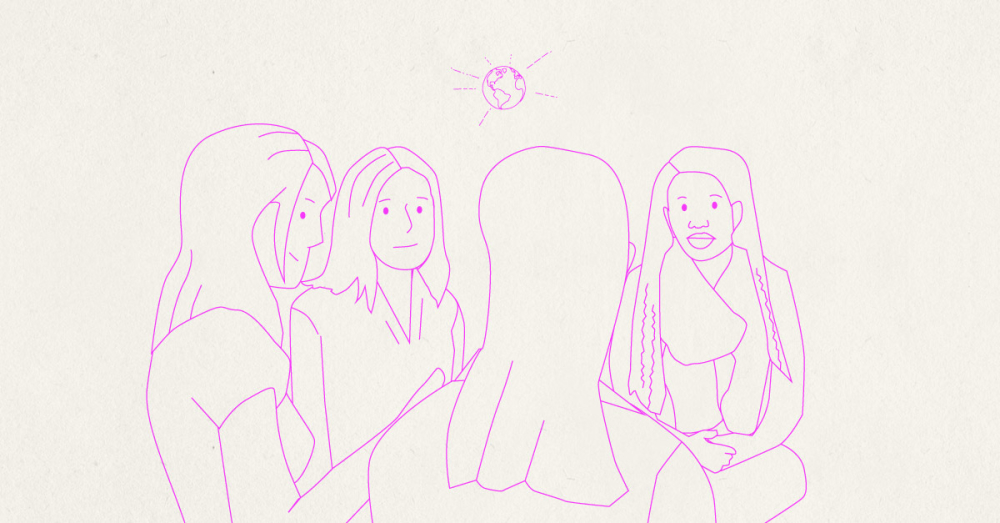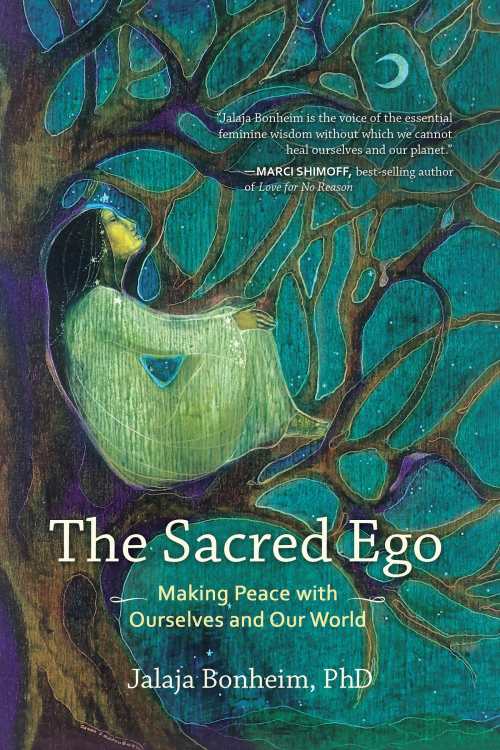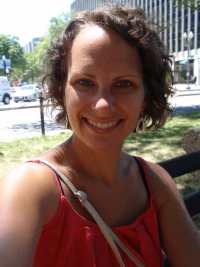The Sacred Ego: A Book That Teaches How to Be Brave in a Fractured World

Charleston. Baltimore. Ferguson. The names of these cities are now geographical code for the violent acts of racism that have plagued the country in recent months. But it is dangerous to treat these cities as anomalies, to put a border around the problem, to drop a pin on a map and pretend it stops there. To do so is to ignore the way endemic racism is woven into the fabric of our entire country’s geography.
As a white person, I benefit continuously from our country’s legacy of racism. Being able to recognize my privilege does not, however, make me an ally. I want to be an ally, but that is not a label I can bestow upon myself. I have work to do.
As I read Jalaja Bonheim’s The Sacred Ego, I saw a path that cuts through the borders.
Bonheim writes truthfully about the economic, ecological, and social violence ever present in today’s world. Her focus is on humanity as a whole and how we, as a species, have the potential to move toward peace. We can do this by addressing the thousands of years of conditioning that have mired us in us-versus-them thinking.
Bonheim does not specifically address our country’s history of racism. Her work has been global, with groups and nations in conflict—with Israeli and Palestinian women, most notably. But the knowledge she imparts is relevant for our own cities and towns—and, most importantly, for our citizens— in learning how heal and change and grow.

The Sacred Ego offers no panacea, no quick fix. But it does provide a framework—in the shape of a circle. The ancient practice of sitting in a circle, of coming together and sitting face to face, is key, Bonheim believes, to beginning the healing and reconciliation process.
I spoke with Bonheim recently to ask about how Circlework, the practice she teaches, could be useful to the process of committing to counter racism. In so many ways, it’s simple, really: we need to be with one another.
“I believe that to heal these very deep-seated wounds of prejudice,” Bonheim states, “we need to come together in person and in an environment that is very safe and very structured. That is what Circlework provides: a container where people can be very honest and authentic but also feel very safe and respected.
“There is a lot of segregation still in our country, and actually that segregation has gotten in some ways stronger … so I think it is crucial that we have the courage to actually face each other and listen to each other’s stories and get to know each other. It’s in that cauldron of transformation that the real changes happen.”
Bonheim offers Circlework training at a retreat center near Ithaca, NY, and her students work all over the country and world to bring the transformative power of the circle to their families and communities and businesses. Some students, one in the Bay Area in particular, are already leading circles that address the wounds of racism and prejudice.
But in order for shifts in attitude and action to occur, Bonheim believes that “there has to be some openness to meet the other, to open oneself to the other.” Perhaps first and foremost, then, we must start with our own willingness by creating a circle of one that embraces our own stories and experiences of suffering. This inner work—and the work of anti-racism—is a continual, lifelong process.
Circles. It may all sound too simple. But I think that coming together authentically in the midst of conflict and injustice, in the midst of a legacy of oppression and privilege, is anything but easy. It takes bravery. Many people already have a lot of it—and are willing, like Bonheim and her students and readers are, to create contexts that can support others on a path toward change.
I’d like to have more bravery.
And because of this, I need books like The Sacred Ego that remind me that I am Charleston, and Baltimore, and Ferguson. Books that teach me how to look clearly and bravely both here and there in order to see what emerges: an opening for healing. A place, at least, to start.

Margaret Fedder is a freelance writer based in Traverse City, Michigan. You can follow her on Twitter @mjfedder.
Margaret Fedder
